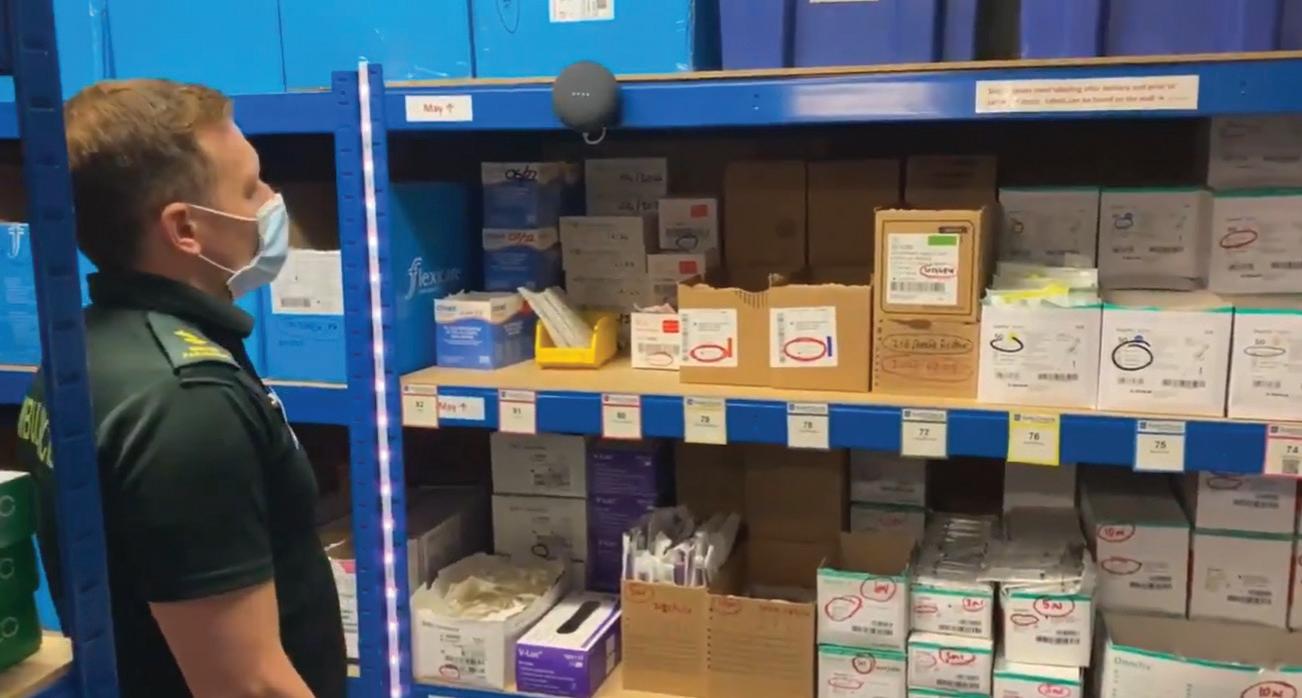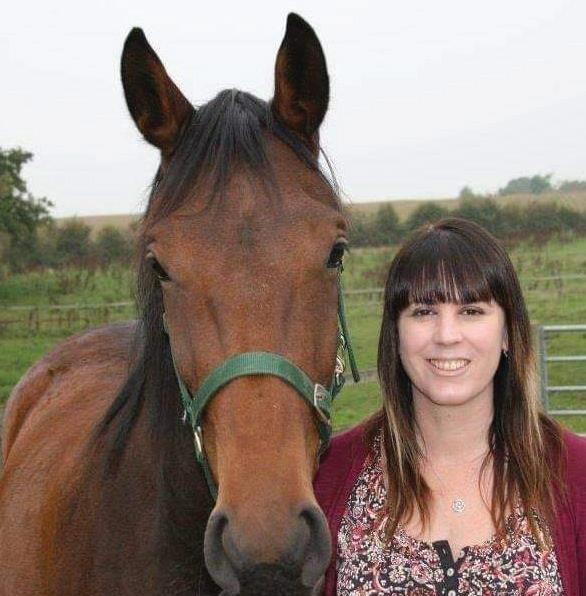
4 minute read
More than 90% of people survive myocardial infarction.
That's the technical term for a heart attack; it means an area of damaged or dying heart muscle has caused an interruption in the blood supply. Some people experience a ‘minor’ heart attack (although it can still be very serious) with no associated complications. Some people experience a ‘major’ heart attack, which has a wide range of potential complications and may require extensive treatment.
If you suspect the symptoms of a heart attack, call 999 immediately and ask for an ambulance. Even if you have doubts, paramedics would rather be called out to find an honest mistake has been made than be too late to save a person's life.

Stephanie Huyton from Liverpool had a serious heart attack in October 2019. It led her to leave her long career with the Crown Prosecution Service and pursue a career in the NHS. Her first port of call was to join our Patient and Public Panel (PPP) as a volunteer.
The afternoon of 18 October 2019 was like any normal busy day in the life of a working mum of three. Steph was getting ready to collect her children from school when she was struck with a sudden excruciating pain in her left arm, quickly spreading across her chest and up into her jaw.
“I was so lucky that my family were on hand and immediately rang 999 for help. NWAS paramedics quickly arrived and carried out all necessary checks which came back normal. I was given pain relief and taken to the hospital for further checks.”
At the hospital, doctors examined Steph and suggested it was likely to be a trapped nerve as her chest x-ray was clear and all vital checks suggested that her pain was not associated with her heart. Steph was told to take a seat in the waiting area until her blood results returned with the likelihood that she would be discharged.
“Things suddenly took a turn for the worst as I was rushed to resus, my blood results having showed extremely high troponin levels, indicating that there was damage to my heart.
“I was in complete shock, you don’t expect things like this to happen - and it was out of the blue with no warning signs. Everything happened pretty quickly after that. I was blue lighted to Liverpool Heart and Chest Hospital (LHCH). The paramedics who accompanied me were amazing, they made me feel comfortable and reassured.”

Upon arrival at LHCH, Steph had an angiogram and echocardiogram which showed spasms of the arteries, indicating that she had suffered a heart attack. A few days later, whilst still in hospital, Steph was struck again by the same pain.
“I knew instantly I was having another heart attack. I can honestly say it was the most worrying time of our lives for my family and I as we didn’t know why it was happening - it was so traumatic. Later that evening I was given the diagnosis of Spontaneous Coronary Artery Dissection otherwise known as SCAD.”
Following her diagnosis, Steph had a genuine desire to see a change in the recognition of this condition and hopes through sharing her story it will provide greater awareness of this condition and be recognised amongst medical professionals and the public, with the ultimate aim of saving lives.
“When you are faced with something potentially life changing it makes you re-evaluate life’s priorities. This whole experience has made me realise how precious my family and friends are.
“It has also made me so thankful for our wonderful health service. It has allowed me to rediscover my interest in health care and after a long career with the Crown Prosecution Service, I hope to one day fulfil my aspirations of working for the ambulance service or within the NHS.
“Joining the NWAS PPP has given me an opportunity to tell my story today, as it provides patients with a voice with which to share our experiences. I felt it would be extremely rewarding to give something back to NWAS in any way that I possibly could, I have always been inspired by the work of the ambulance service.”
What is SCAD?

SCAD is an under diagnosed condition which is extremely rare. It occurs when a tear or bruise develops in one of the coronary arteries causing a blockage and preventing normal blood flow to the heart, resulting in an unexpected heart attack or cardiac arrest.
SCAD cannot be predicted or prevented and most of those who suffer this are healthy, meaning that SCAD is often misdiagnosed or there is a delay in diagnosis.
Research continues into this condition and what actually causes this to occur. Factors such as pregnancy postpartum, extreme stress, hormonal changes, and intense exercise and connective tissue disorders have been associated with SCAD, however the exact cause remains unclear in a number of cases, Steph’s included.
The British Heart Foundation has more information on SCAD online at bhf.org.uk.
You can join our PPP like Steph
We’ve created our Patient and Public Panel to give members of the public a voice and the chance to have their views acted upon. The panel is made up of representatives from local communities, interest groups, the voluntary sector and partner organisations, and offers meaningful opportunities to influence improvements in our emergency, patient transport and 111 services.
Varying levels of participation enables you to get involved in a way that suits you best, depending on the amount of time and level of interest they have.










